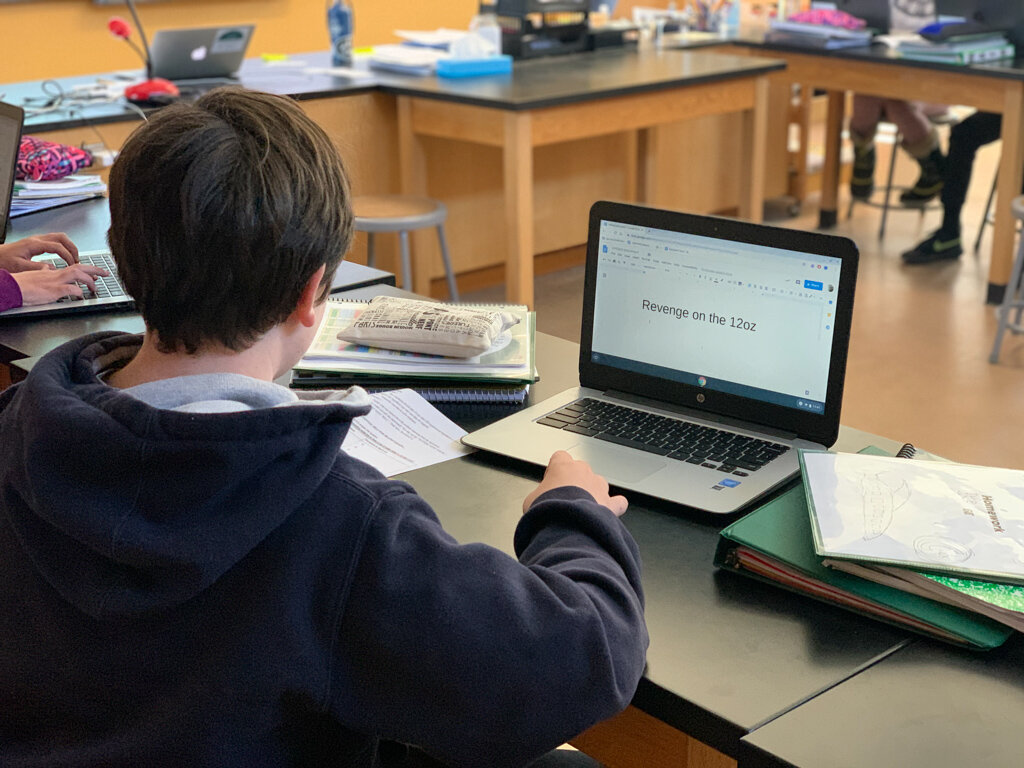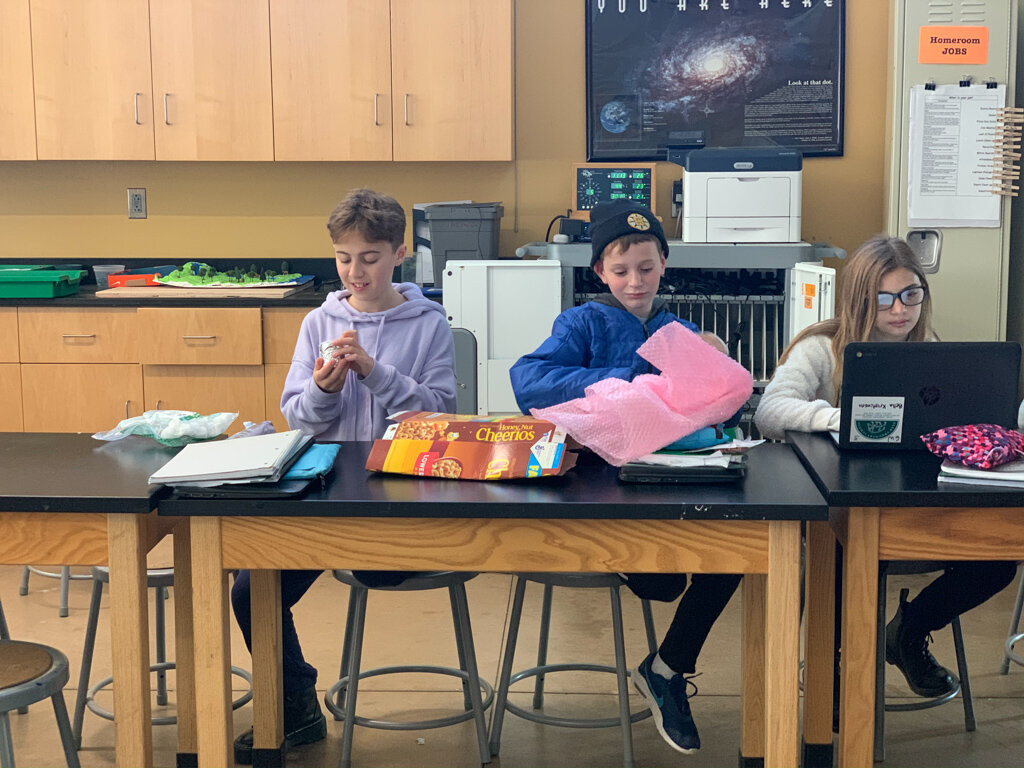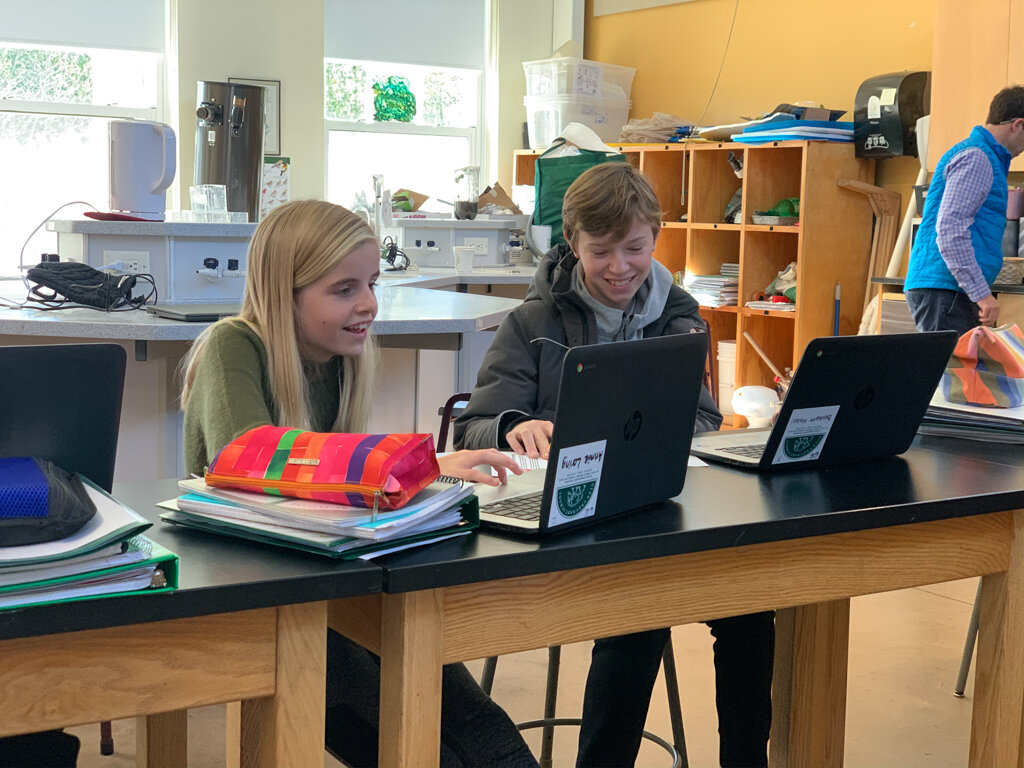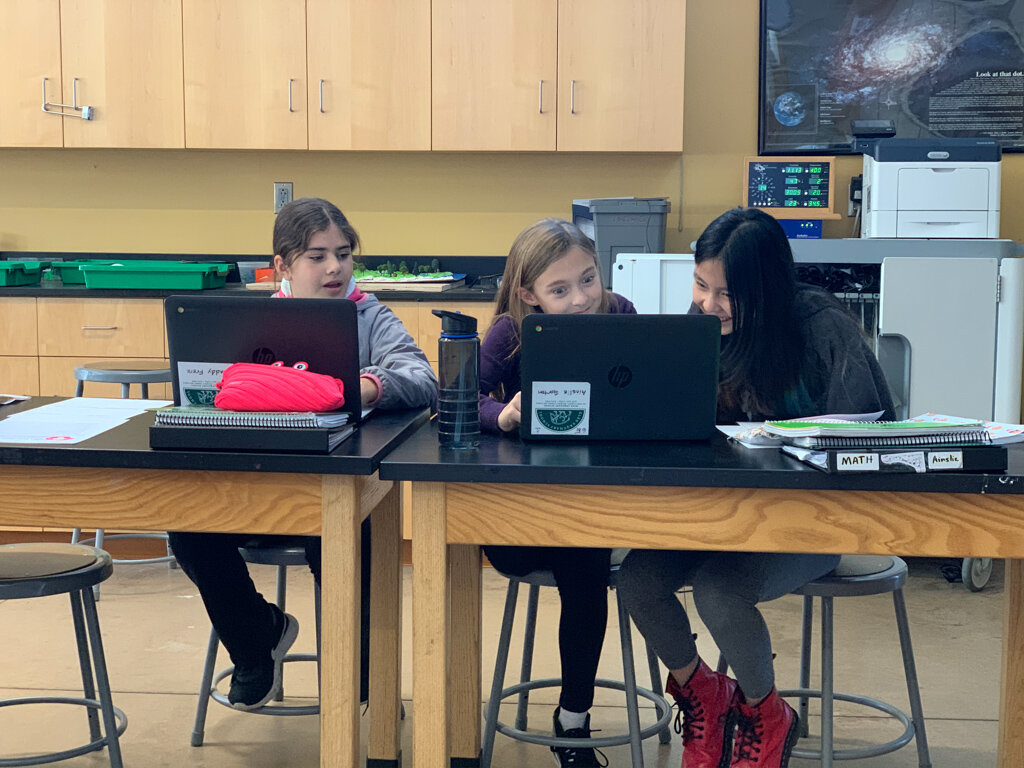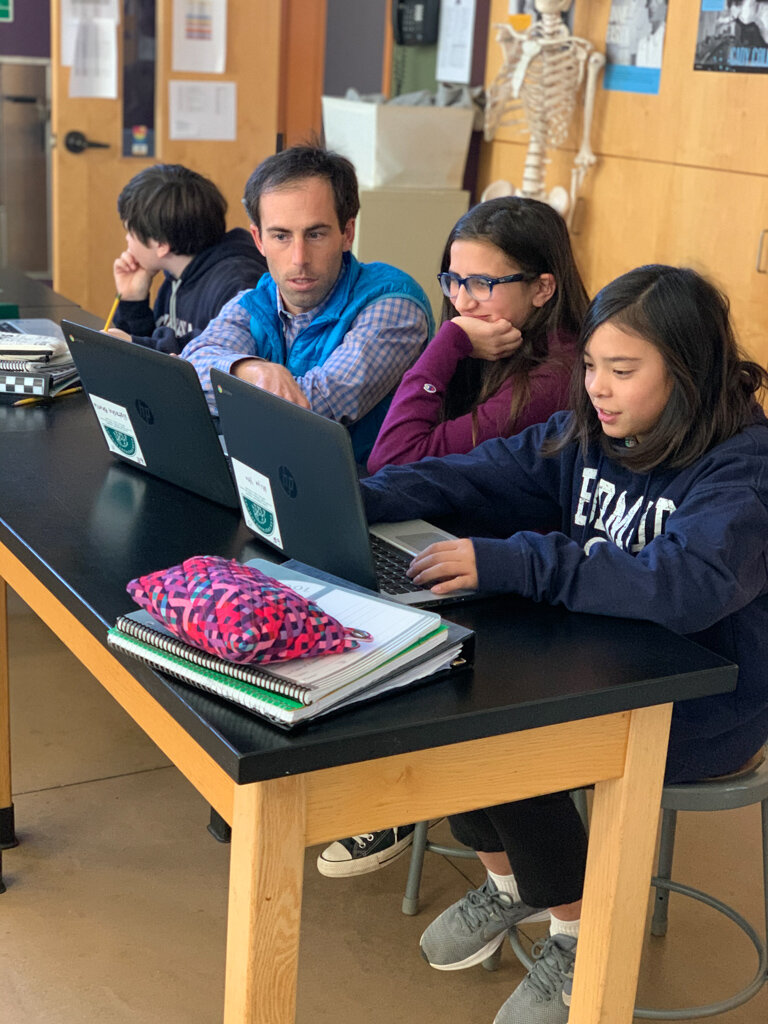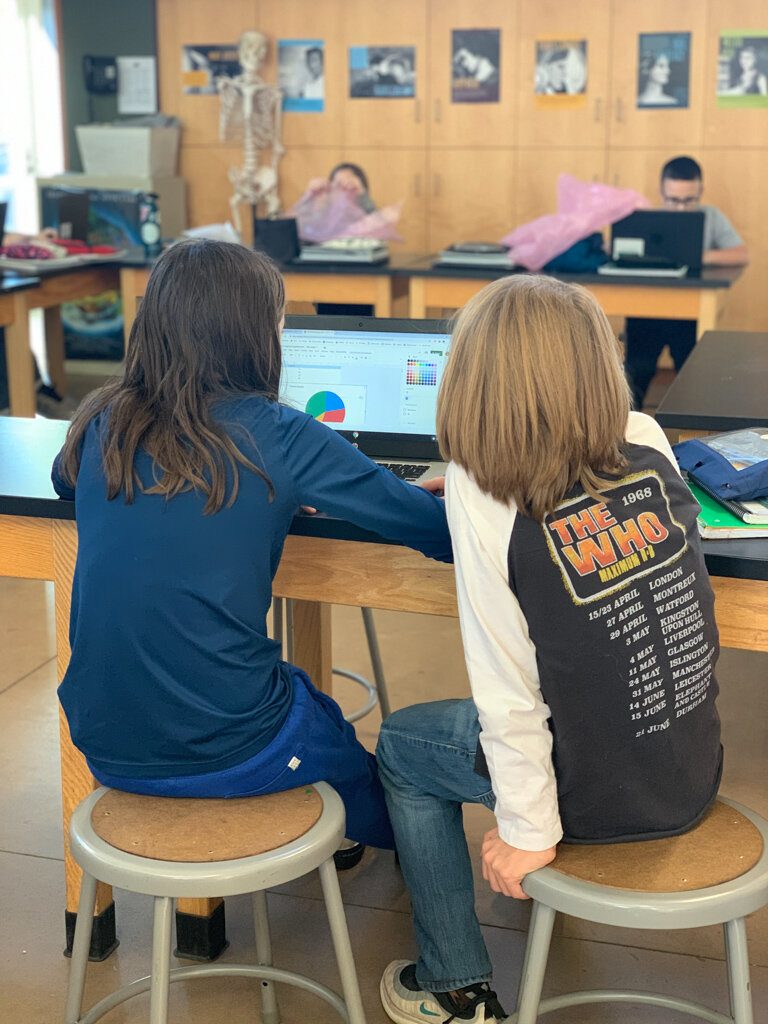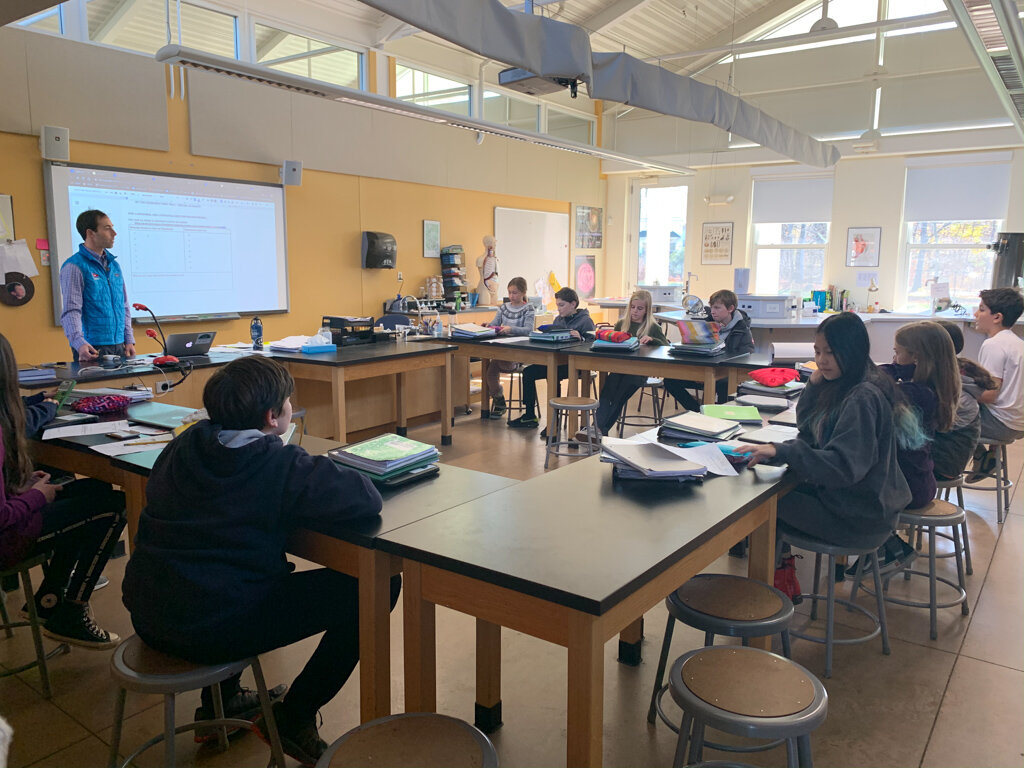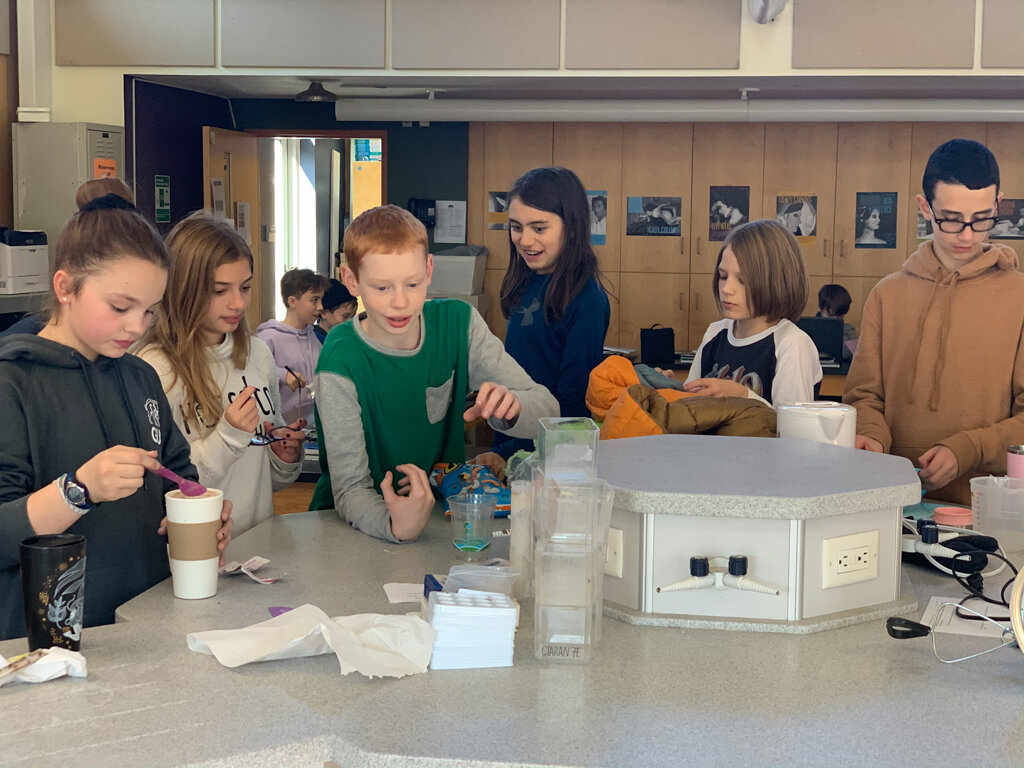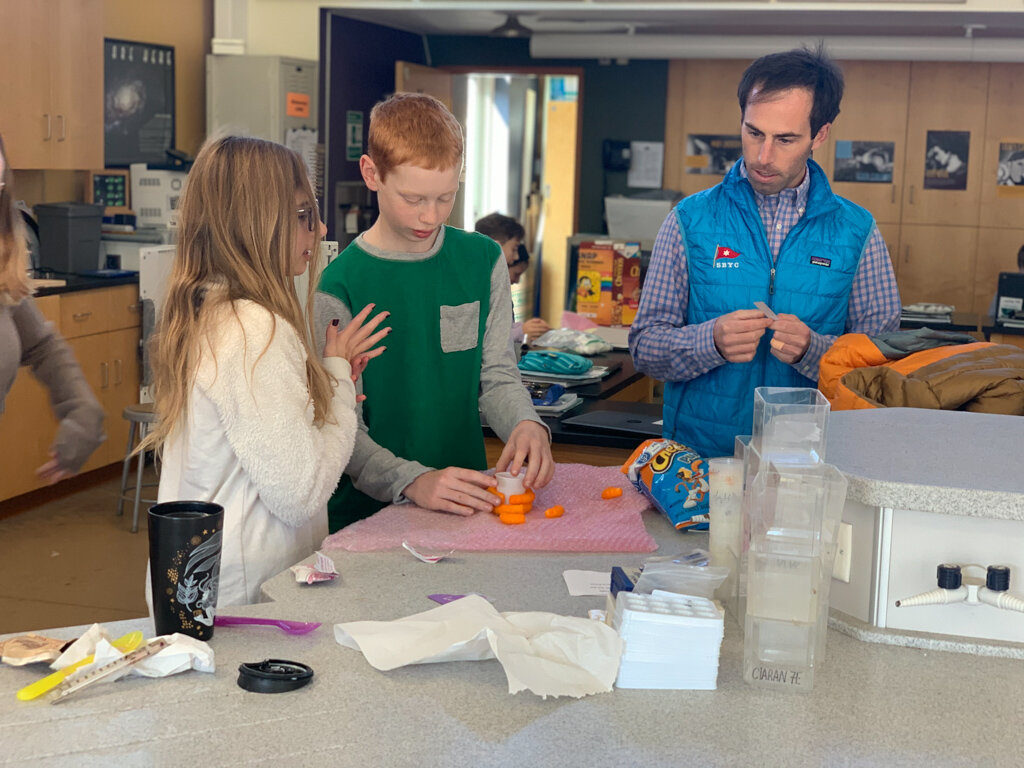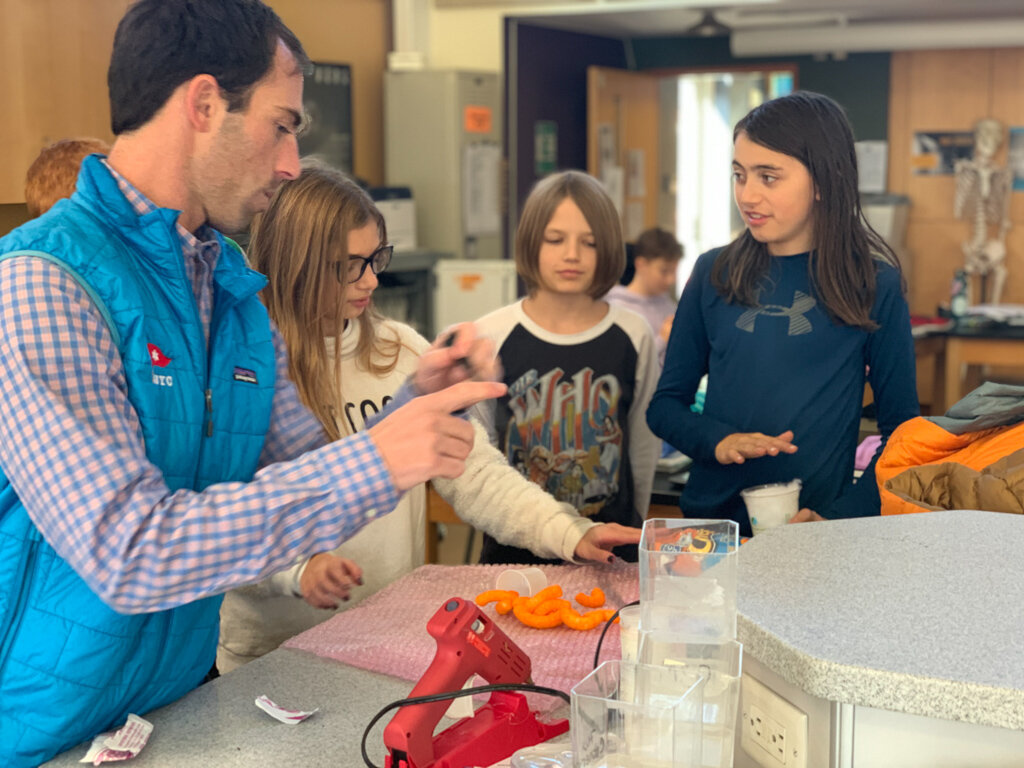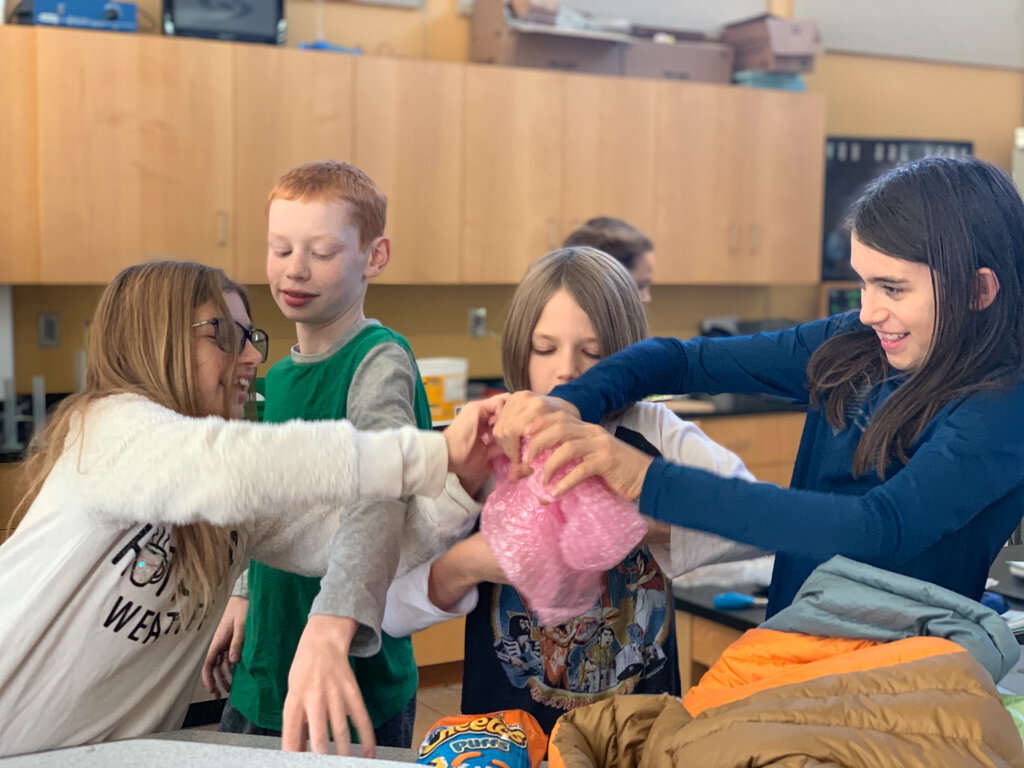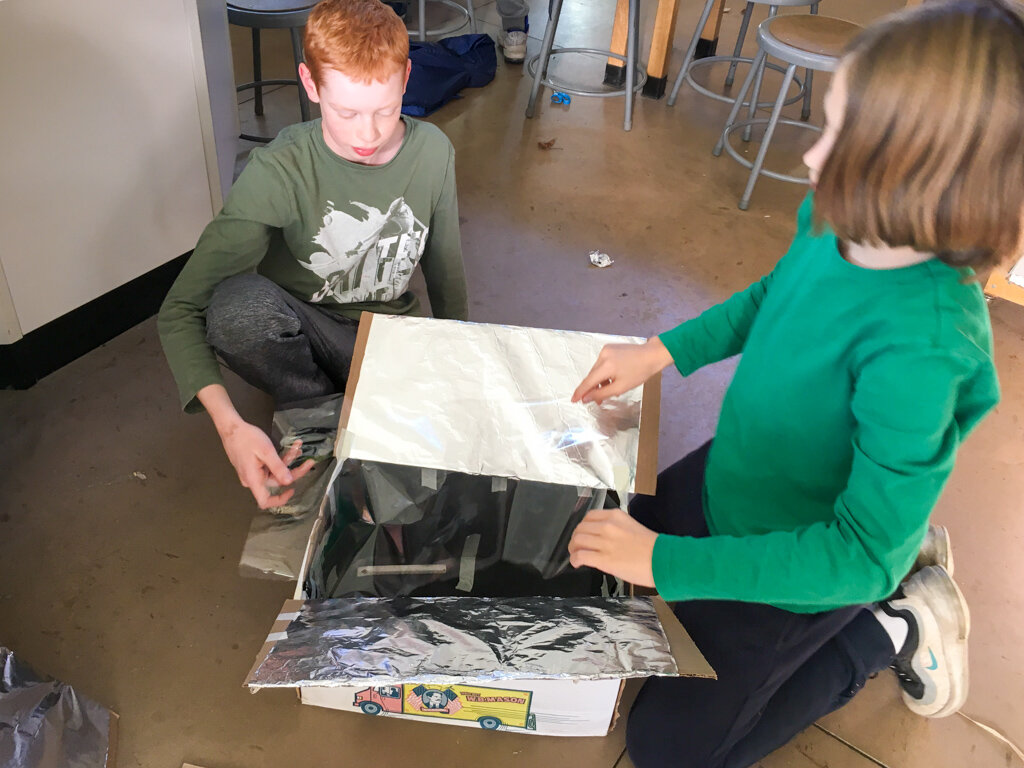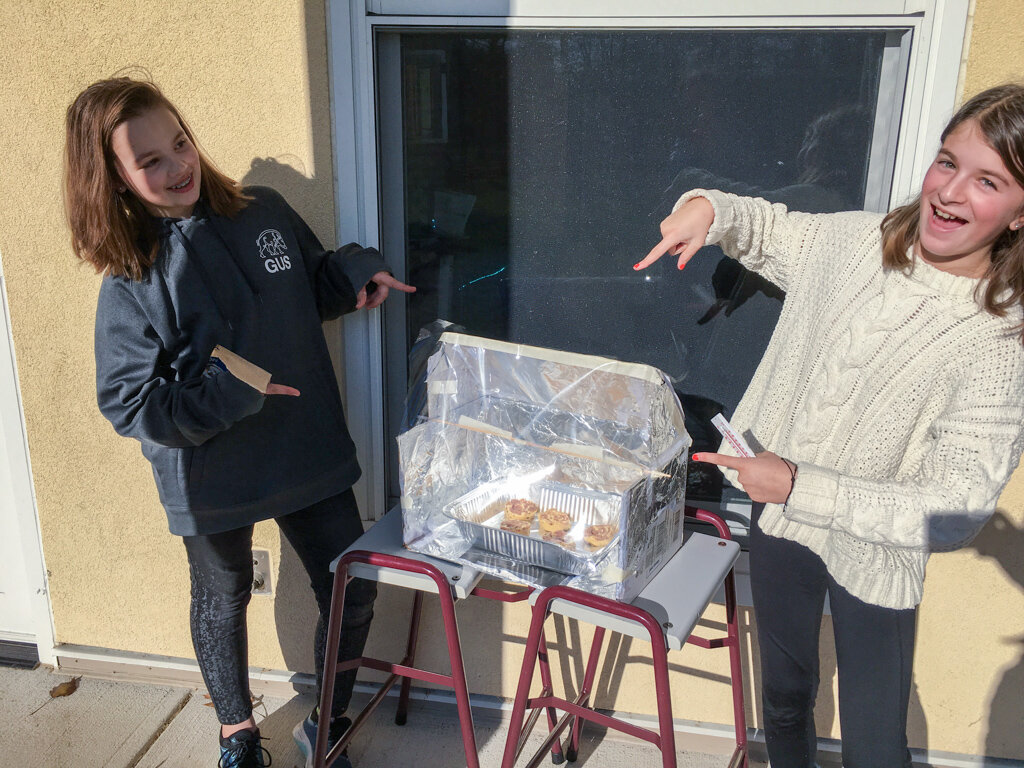Design Thinking Brings The People to Scientific Exploration
Sixth Grade Science Begins with Empathy
At GUS, the sixth grade theme is The People. Students spend the year immersed in studies that focus on different groups of people, how they relate to one another across geographical boundaries, across historical boundaries, and the effect that all people have on the world around us.
“Part of the GUS mission is to learn to respect all people and value their differences,” says Christine Draper, upper school social studies teacher. “The sixth grade theme, The People, leads students to think about how people across time and around the globe have interacted with their environment to solve problems and meet their needs, and how people learn to get along with each other.”
Throughout the year in science, students approach a variety of hands-on activities and projects using the Design Thinking process. Empathy, the first step in the process, encourages students to develop an understanding for the people they’re designing a solution for - before they set out to define an experiment or offer solutions to a problem. “Through empathy, we are able to put ourselves in other people's shoes and connect with how they might be feeling about their problem, circumstance, or situation.”
“In keeping with our theme, The People, we look closely at the human impacts, especially on those in tougher situations than ourselves, and how we might use our knowledge, curiosity, and creative thinking to help out,” says Alex Levin, upper school science teacher.
In science, students start the year exploring the water cycle and our community at GUS as a watershed. They then move up, focusing on temperature and heat transfers, followed by air, atmosphere, and the seasons, then weather - with a focus on how different people are impacted by different weather hazards. The year culminates with astronomy and space exploration, finishing up with a unit on electrical circuitry and futurist solutions to smaller global problems. The scientists who have made (and continue to make!) important discoveries time are incorporated throughout our curriculum.
“Through our unit on the water cycle and the watershed, students learn about access to clean drinking water, and how it can vary across the globe, and even domestically,” says Levin. “In our current unit on heat transfers (conduction, convection, and radiation), students are building solar cookers/ovens that could help in certain communities where stoves, ovens, and electricity are not prevalent.”

